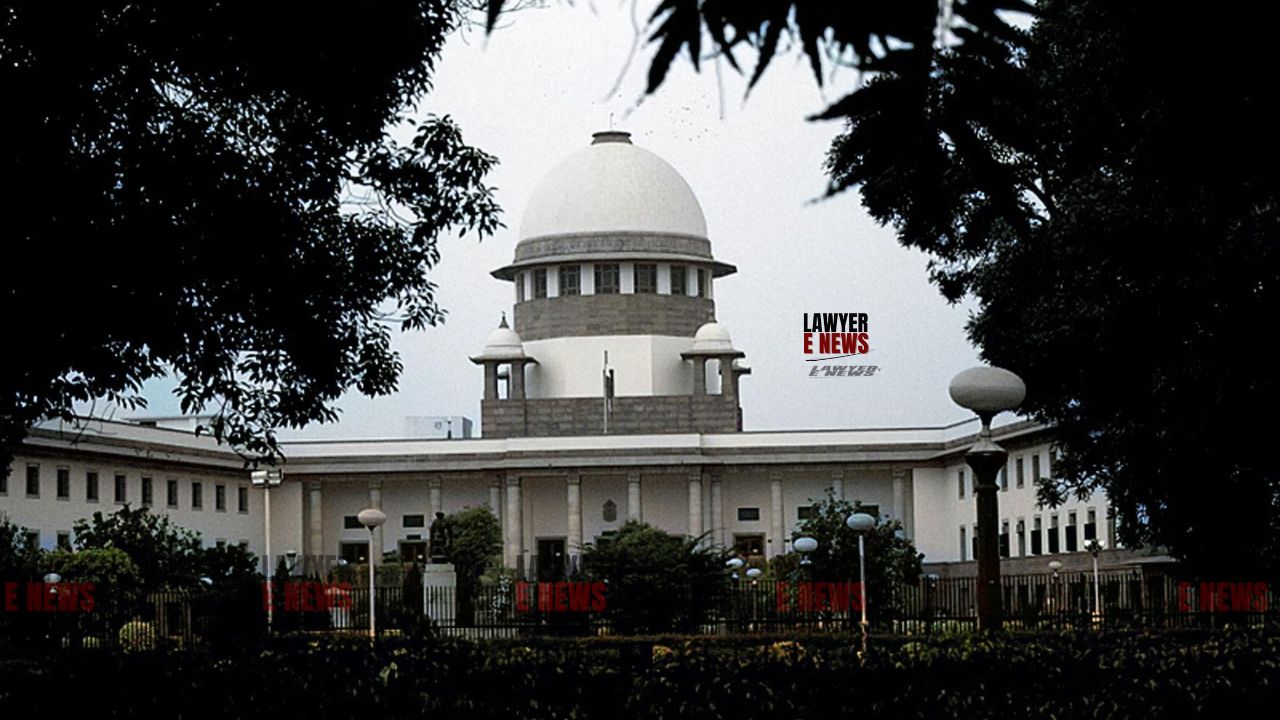-
by Admin
15 February 2026 5:35 AM



"Even an intention to commit an offence punishable with imprisonment, coupled with house-trespass, constitutes the offence punishable under Section 451." – Justice C.T. Ravikumar. Supreme Court of India delivered a judgment partially reducing the sentence of Didde Srinivas, who was convicted for offences under Sections 354 and 451 of the Indian Penal Code (IPC). While confirming the appellant's conviction under both sections, the court reduced the sentence under Section 354 from two years to one year of rigorous imprisonment (R.I.), citing mitigating factors such as the passage of time and the appellant's age at the time of the offence.
The case pertained to an incident on January 29, 1999, when the appellant, then 21 years old, committed house-trespass and outraged the modesty of a woman, who later tragically committed suicide. However, there was no charge against the appellant under Section 306 IPC for abetment of suicide.
The Trial Court initially convicted him under Section 376 (rape) read with Section 511 (attempt) IPC, sentencing him to three years of R.I., and under Section 451 IPC, sentencing him to one year of R.I. The appellate court modified the conviction under Section 376 IPC to Section 354 IPC, reducing the sentence to two years, while maintaining the one-year sentence for house-trespass under Section 451 IPC. The High Court later upheld these convictions and sentences.
The Supreme Court upheld the appellant's conviction under Section 451 IPC, which pertains to house-trespass with the intention to commit an offence punishable with imprisonment. The court found no reason to interfere with the concurrent findings of the lower courts based on credible testimonies:
"The creditworthy testimonies of PWs 4 and 5 were rightly believed by the courts below."
The court underscored that the act of trespass, coupled with the intention to commit an offence like outraging modesty (under Section 354 IPC), fully justified the conviction:
"An intention to commit an offence punishable with imprisonment, coupled with house-trespass, constitutes the offence under Section 451 IPC."
The court affirmed the appellant's conviction under Section 354 IPC, which criminalizes assault or use of criminal force to outrage a woman's modesty. While noting the gravity of the act and its consequences, the court also considered mitigating factors:
The appellant's young age (21 years) at the time of the offence.
The absence of criminal antecedents.
The passage of over 25 years since the incident.
Taking these factors into account, the court reduced the sentence under Section 354 IPC from two years to one year of R.I., stating:
"Reducing the sentence for the conviction under Section 354 IPC to one year R.I. would be the comeuppance for the commission of the aforesaid offence."
Rejecting the appellant's plea to reduce the sentence under both sections to the 64 days of incarceration already undergone, the court observed:
"Reducing the corporeal sentence to the period already undergone would not be proportionate punishment for the conviction under Section 354 IPC, given the nature and gravity of the offence."
The Supreme Court ordered that both sentences—one year under Section 354 IPC and one year under Section 451 IPC—be served concurrently. The appellant was directed to surrender before the trial court within four weeks to serve the remaining sentence. The court clarified:
"In case the appellant does not surrender within the aforesaid period, he shall be taken into custody to serve the remaining period of sentence in accordance with law."
This judgment highlights the judiciary's balancing act between upholding justice for victims and accounting for mitigating circumstances when determining proportional punishment. The court’s observations on the interplay of Sections 354 and 451 IPC reinforce legal principles concerning intent, house-trespass, and punishment proportionality.
Date of Decision: November 13, 2024
